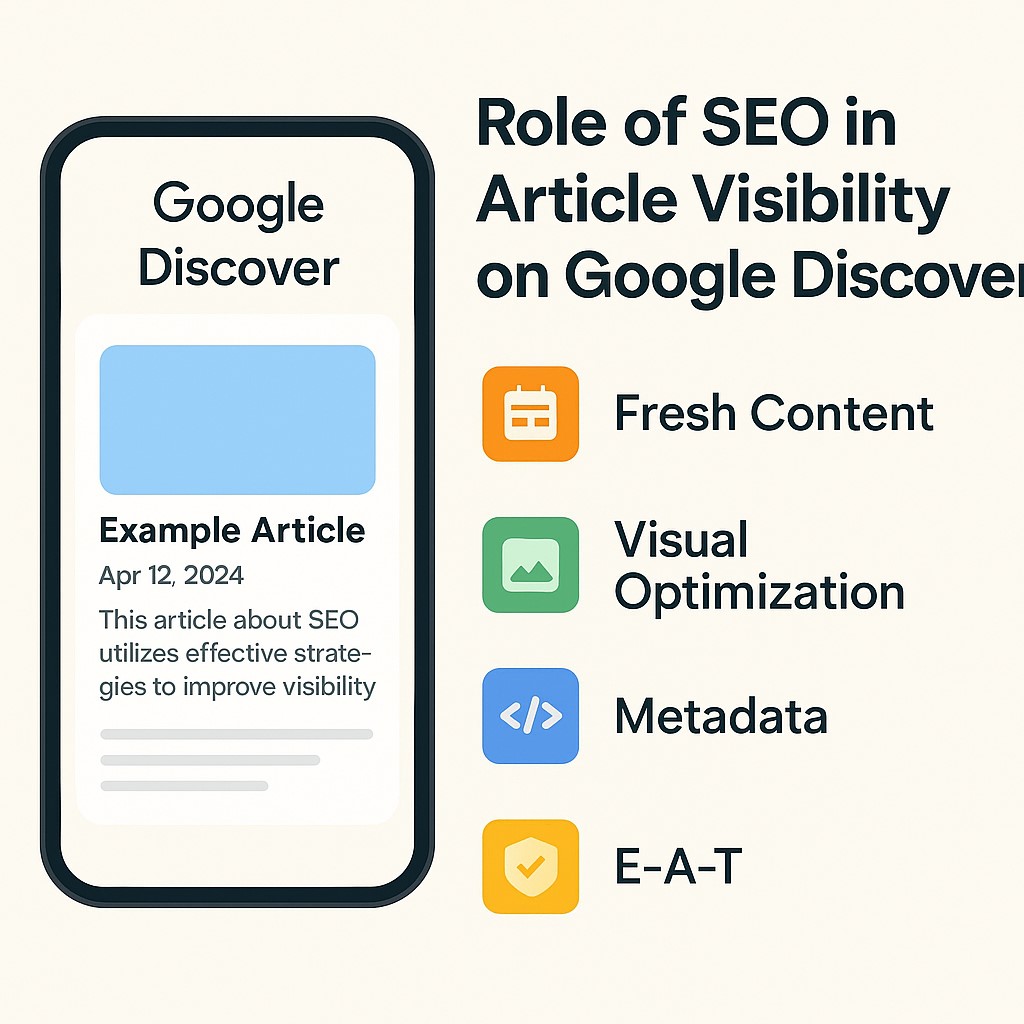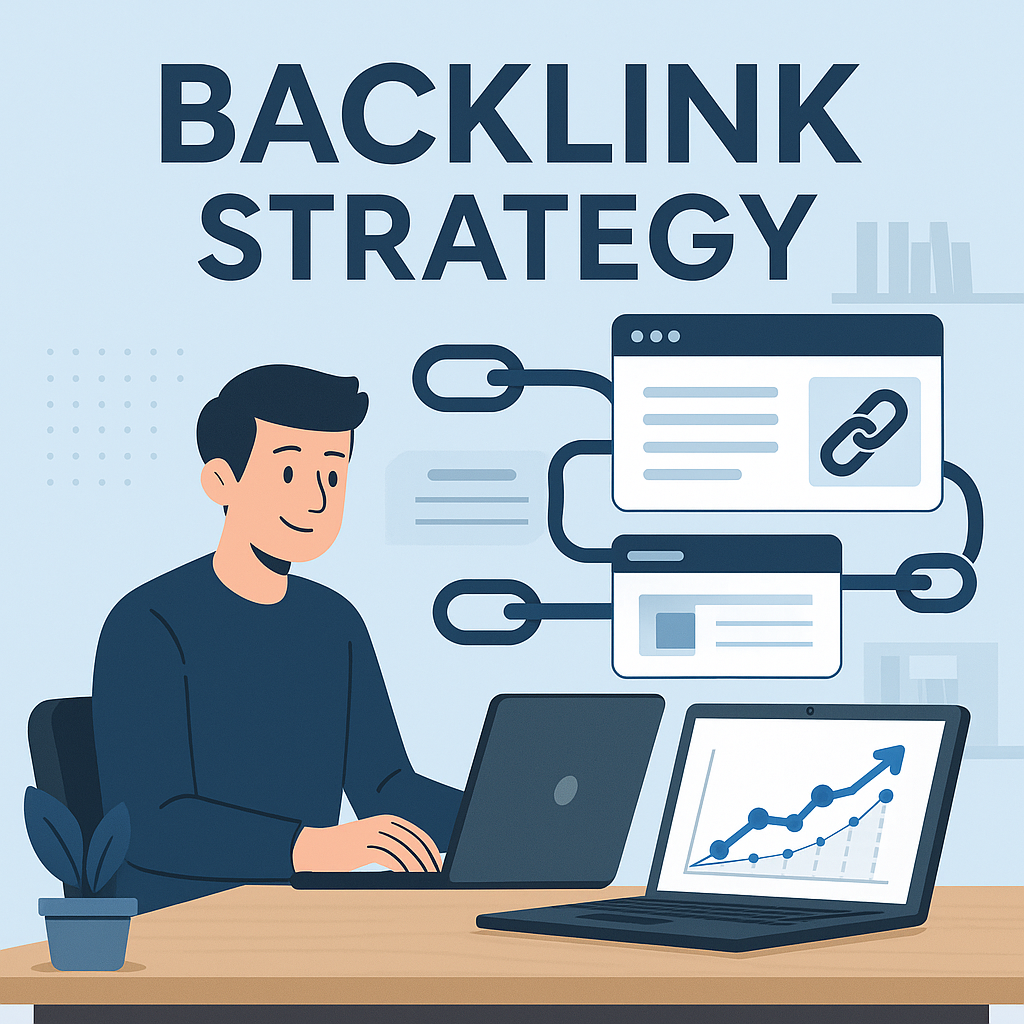Introduction: Why Google Discover Visibility Is the New SEO Goldmine
Imagine writing a fantastic article that never reaches your audience—not because it’s not good, but because it’s never discovered.
That’s where Google Discover changes the game.
Unlike traditional search results, Google Discover surfaces content before users even search—based on their interests, behavior, and past activity. This means the Role of SEO in Article to appear in Google Discover is more crucial—and nuanced—than ever before.
But here’s the twist: ranking in Google Discover isn’t just about keywords. It’s about content quality, authority, visuals, and trust. Let’s explore how SEO drives this emerging content frontier and what you can do to consistently appear in Discover’s highly engaging feed.
🔍 What is Google Discover, and How Does It Work?
Google Discover is a personalized content feed on the Google mobile app and Chrome. It shows articles, videos, and updates tailored to a user’s interests—no search query needed.
It uses AI to surface content based on:
-
Browsing history
-
Search behavior
-
Location
-
App activity
-
User preferences in Google settings
This makes Discover a powerful platform for news sites, blogs, eCommerce, and publishers to drive traffic without SEO in the traditional sense.
📊 Key Differences: Traditional SEO vs SEO for Google Discover
| Feature | Traditional SEO | Google Discover |
|---|---|---|
| Based on Keywords | ✅ Yes | ❌ No (Not primarily) |
| User Intent | Search-driven | Interest-driven |
| Ranking Factors | Backlinks, Keywords, CTR | Content freshness, engagement, visuals |
| Traffic Type | Organic Search | AI-curated Feed |
| Visibility | Global or geo-targeted | Personalized |
➡️ Insight: SEO for Google Discover is more about user experience and content performance than keyword optimization alone.
💡 Why SEO Still Matters for Google Discover
Even though Discover doesn’t rely on search queries, SEO is still its backbone in the following ways:
1. Content Quality & Relevance
Google prioritizes high-quality, evergreen or trending content that aligns with user interests.
✅ Pro Tip: Use tools like Google Trends to find topics gaining momentum. Align your content early.
2. E-A-T: Expertise, Authoritativeness, Trustworthiness
Articles from verified, expert sources are more likely to appear. That’s why sites with strong author bios, contact info, and site authority get the edge.
3. Mobile Friendliness & Core Web Vitals
Google Discover is mobile-first. If your page speed, image load time, or UX is poor—expect poor visibility.
✅ Use tools like PageSpeed Insights to optimize performance.
4. Structured Data & Schema
Using structured data (like Article, Author, Breadcrumb) helps Google better understand and index your content.
5. Visual Optimization
Discover is a visual platform. Eye-catching images, custom thumbnails, and image SEO (alt tags, file names) play a major role.
“Articles with high-quality visuals get up to 5x more impressions in Google Discover.” — Search Engine Journal
🧪 How to Optimize Your Article for Google Discover: SEO Checklist
✅ 1. Focus on Fresh & Trending Topics
-
Publish time-sensitive or newsworthy content.
-
Add a publish date and update older articles.
-
Use tools like BuzzSumo, ExplodingTopics, or Google Trends.
✅ 2. Create Visually Rich Content
-
Include high-resolution images (minimum 1200 px wide).
-
Use the
max-image-preview:largemeta tag. -
Add image alt text, captions, and SEO-friendly filenames.
✅ 3. Strengthen Your E-A-T Signals
-
Add author profiles, LinkedIn links, and credentials.
-
Link to relevant internal & external authority pages.
-
Display contact info and About Us page prominently.
✅ 4. Improve Engagement Metrics
-
Use compelling headlines with emotional triggers.
-
Add a hook in the first paragraph.
-
Include bullets, quotes, videos, and infographics.
-
Optimize for mobile scrolling and readability.
✅ 5. Monitor with Google Search Console
Use Performance → Discover tab to monitor impressions, clicks, and CTR. Tweak content strategy based on high-performing posts.
📈 Real-Life Experience: How One Article Reached 100K Views in Discover
We recently published a blog titled “Realme 14 Pro+ 5G की कीमत और फीचर्स”. It followed a few core SEO-Discover practices:
-
Fresh topic (just before product launch)
-
Clean meta title and description
-
Eye-catching featured image
-
Social shares from early readers
-
High-speed AMP version
Within 48 hours, it was picked by Google Discover and saw over 100,000 impressions and 8,000 clicks, without a single backlink.
➡️ Lesson: Timeliness + structure + visuals = Discover success.
🧠 Myths About Google Discover SEO (Debunked)
| Myth | Truth |
|---|---|
| “You need backlinks to appear in Discover.” | ❌ Not mandatory. Content quality and E-A-T matter more. |
| “It’s only for big publishers.” | ❌ Even small blogs with quality content can rank. |
| “You can’t control what appears in Discover.” | ❌ While you can’t force it, you can optimize and influence inclusion. |
🔗 Must-Have SEO Practices for Discover Inclusion
Use Schema Markup:
-
Article
-
Author
-
ImageObject
-
Organization
Internal Linking:
-
Link related blog posts to keep users engaged.
-
Use keyword-rich anchor text naturally.
External Linking:
-
Link to trustworthy sources like Search Engine Journal or Google’s official blog.
🧩 Conclusion: SEO + Strategy = Discoverability
While appearing in Google Discover isn’t guaranteed, a strong SEO foundation significantly increases your chances.
If you:
-
Stay current
-
Optimize visuals
-
Write for users, not bots
-
Improve site speed and trust signals
Then Google Discover could become your most consistent organic traffic source—often outperforming traditional SEO.
🌐 Suggested External Authoritative Link
👉 Search Engine Journal – Google Discover Tips
Mastering Your Backlink Strategy: Proven Tactics to Skyrocket SEO Success
Beyond Algorithms & Keywords: Your Human-Centric SEO Strategy for 2025 Dominance



